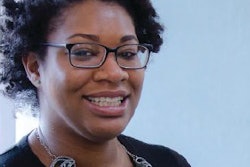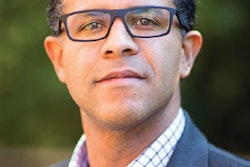When it comes to young people, their health and lifestyle habits, the large amounts of sugar they consume and linkages to diseases like obesity are documented and well known. But in 2014, University of Wisconsin–Madison cardiologist and assistant professor Heather Johnson brought to the nation’s attention a grim and lesser-known health fact about young adults: 1 in 10 suffer from hypertension and at rates that creep close to those seen in people as old as their parents and grandparents. And even when these young adults are considered hypertensive based on their numbers, they often go undiagnosed and untreated, Dr. Johnson concluded.
She and her research team at the University of Wisconsin School of Medicine and Public Health analyzed the medical records of more than 10,000 patients who visited a practice over a fouryear period. Dr. Johnson’s study, one of the largest of its kind, published in the Journal of General Internal Medicine, suggests that “not enough young adults with incidents of hypertension receive documented lifestyle education information from their healthcare providers.” That’s alarming, says Johnson, since educating patients about the benefits of incorporating such things as dietary changes and exercise into their daily lives is considered “critical first steps” for controlling hypertension.
What she revealed proved to be a wake-up call for some physicians across Wisconsin and the nation. It’s also been a major opportunity for Johnson to work on the very thing that guides her practice and what drew her to cardiology — the opportunity to deliver preventative and innovative solutions that she hopes will ultimately stem the rate of young people with high blood pressure and heart disease. High blood pressure among African- Americans, especially men, is significantly more prevalent, and, compared to other groups, the disease occurs earlier as young adults, Johnson explains.
As the principal investigator of a National Heart, Lung, and Blood Institute research program, Johnson is working to identify and address barriers to hypertension control in young adults and has developed interventions that can help young adults place their blood pressure under control.
Johnson, says Dr. Molly Carnes, M.D., a UW professor and director of the Center for Women’s Health Research, “has the potential to change the way hypertension is identified and managed throughout the U.S. and will likely improve the health of large populations of African- Americans.”
Care and prevention are always the aim, assures Johnson, a mother and mentor who bounds between treating and educating patients in her bustling cardiology practice and the classroom where she trains the next generation of young doctors. In 2010, Johnson was 33 when she joined the UW medical school staff.
Since entering UW as an undergraduate student in the distinguished Chancellor’s Scholar program, Johnson has ascended in a familiar place. She proudly credits the support of family and a network of UW female colleagues and mentors for her climb and success. “It’s because of them,” she says. Having earned all of her academic degrees from UW, it’s no doubt that Johnson’s former professors and mentors call the Chicago native “homegrown.”




















